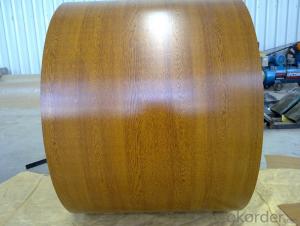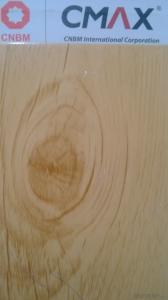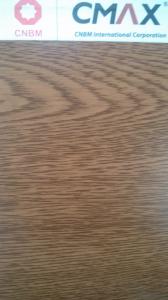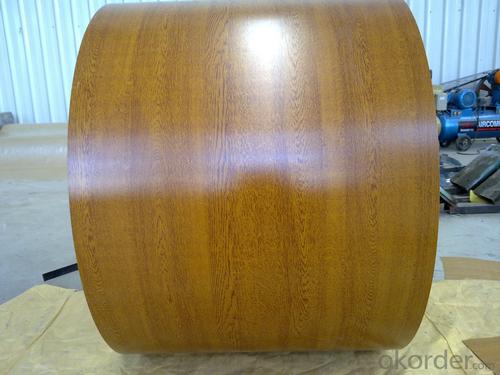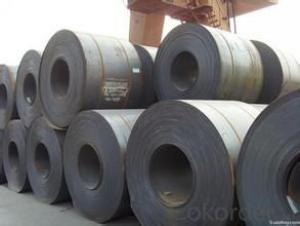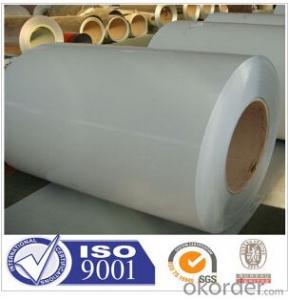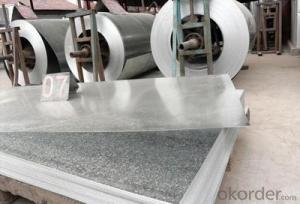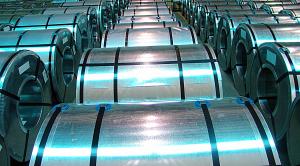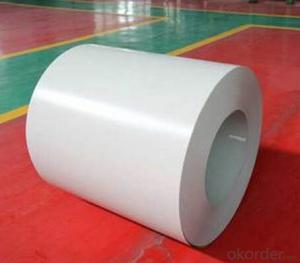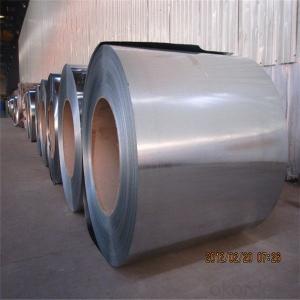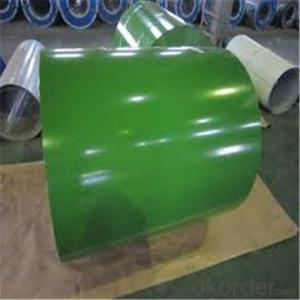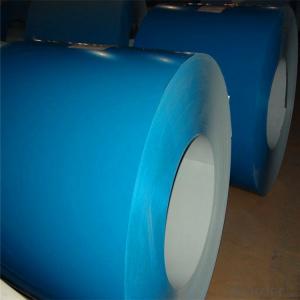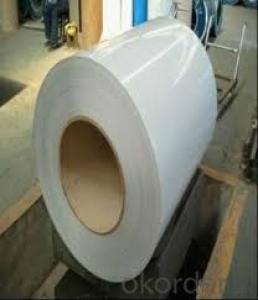Galvanized Printing Steel Coil
- Loading Port:
- China Main Port
- Payment Terms:
- TT OR LC
- Min Order Qty:
- -
- Supply Capability:
- -
OKorder Service Pledge
OKorder Financial Service
You Might Also Like
Quick Details
Standard: | ASTM,GB,JIS | Grade: | SGCC | Thickness: | 0.2mm-1.2mm |
Place of Origin: | Jiangsu China (Mainland) | Brand Name: | EAST STEEL | Type: | Steel Coil |
Technique: | Cold Rolled | Surface Treatment: | Coated | Application: | Other |
Special Use: | Wear Resistant Steel | Width: | 800mm-16000mm | Length: | as customer's required |
Specifications
1) Manufacturer of Galvanized Steel Coil
2) Superior quality with moderate price
3) Wide size range
4) Quick delivery
items | thickness | TYPE | Features |
Protection film | 50μm | polyethylene | Protecting from scratchs and contamination (Option) |
Finished coat | 10μm | PVDF | Protecting printed layer and enhances the appearance of the surfaces |
1μm | Ink, Polyester | Various printing patterns,3 color overprint | |
Top coat | 20μm | Polyester Fluorine | Chemical resistance, formability and patterns multiformity |
Primer coat | 5μm | Polyester | workability, corrosion resistance and adhesion to the primer coating |
Chemical treatment | 1μm | Chromate | Good adhesion and corrosion resistance |
substrate | 0.2-1.2mm | GI.GL.AL | GI.GL,AL |
Chemical treatment | 1μm | Chromate | Good adhesion and corrosion resistance |
Back coat | 5μm | Epoxy | corrosion resistance and adhesion to the substrate |
- Q: What are the main factors that affect the price of steel coils?
- The main factors that affect the price of steel coils include the cost of raw materials such as iron ore, coal, and other alloys, supply and demand dynamics in the steel industry, production and transportation costs, fluctuations in currency exchange rates, and government policies and regulations. Other factors such as global economic conditions, trade tariffs, and market competition also play a significant role in determining the price of steel coils.
- Q: On a free standing carport with an 8 inch, 22 foot long aluminum i-beam, would a steel 8-inch i-beam be just as strong? I am looking into it since they are cheaper.
- steel is definitely cheaper than aluminum. for the same size, steel is stronger. and much heavier. it may/will require stronger support posts. you'll want to be careful not to set up a galvanic reaction where you have steel and aluminum meet. stainless steel is much more expensive. you just want to make sure your steel beams have a good rustproof coating. either zinc plate or paint.
- Q: is stainless steel a good steel for sensitive skin? or does it have to be surgical or sterling silver?
- idk about sensitive skin but i have stainless steal in i think right now. im sure any are good for a healed belly piercing, if it hasnt been 3 monthes yet then id stick with a surgical
- Q: It seems that steel would be stonger and more stable than wood, fire resistant, and better for the environment, so why are most homes wood-framed rather than steel-framed?
- Because it's always been done that way. Never underestimate inertia when asking why new materials/techniques are not adopted. Besides, the cost does not give steel a clear advantage. You can drive a nail anywhere into a stud. With steel, you have to drill your holes precisely.
- Q: i would like to know of any companies who buy shredded scrap steel
- We are one of the biggest steel mills in Asia. Under our group, we have steel mills in Thailand and Bangladesh. On the monthly basis, we purchase steel scrap HMS1/2 80:20 and the shredded ISRI210/211, ISRI211 by bulk and 20' container to Thailand and Bangladesh. Due to the limitation of our existing shredded steel scrap supplier, we need to get more supply of the shredded. Please contact us or offer us of ISRI 210/211 or ISRI211 CFR Chittagong, Bangladesh with 500mt - 2000mt per shipment by 20' container. If any questions, please feel free to contact us.
- Q: How are steel coils used in the manufacturing of steering columns?
- Steel coils are used in the manufacturing of steering columns as they provide strength and durability to the structure. The steel coils are typically formed into a cylindrical shape and then welded or joined together to create the main body of the steering column. This ensures that the steering column can withstand the forces and impacts experienced during vehicle operation, providing stability and control to the driver.
- Q: How do steel coils impact the overall cost of production?
- Steel coils can have a significant impact on the overall cost of production. The cost of steel coils is a major component in the production process, as they are used as raw materials in various industries such as automotive, construction, and manufacturing. Fluctuations in the price of steel coils can directly affect the cost of production, ultimately influencing the final price of the end product. Additionally, factors such as transportation and storage costs also contribute to the overall impact of steel coils on production costs.
- Q: what do you think about producebility of low density steel? for example: can density of 1020 steel (or ony others) be decreased without any loss of other properties.
- 1. A method has been developed for magnetic phase analysis of Fermanal type alloys as-quenched and after aging. 2. The upper limit of alloying to ensure the optimal mechanical properties was determined more precisely for steel 9G28Yu9MVB. For rods aged at 550°C for 16 h the aluminum content should not exceed 9.2% and the carbon content 0.92%. 3. To ensure the optimal mechanical properties of the deformed metal it is necessary to obtain a fine-grained single-phase austenitic structure after quenching. The amount of hardening phase after quenching should not exceed 15–20% (saturation magnetization around 1600 G).
- Q: What are the common methods of inspecting steel coils for quality control?
- Steel coils are inspected for quality control purposes using various methods. These methods involve visual inspection, dimensional measurement, and non-destructive testing. To inspect steel coils, visual inspection is a commonly used and straightforward method. This entails visually examining the surface of the coils for any visible defects such as scratches, dents, or discoloration. Visual inspection also includes checking the labeling, packaging, and identifying signs of corrosion or damage. Another crucial method to ensure quality is dimensional measurement. This involves measuring different dimensions of the coils, such as thickness, width, and length, to ensure they meet the required specifications. Tools like calipers, micrometers, or laser measurement devices can be utilized for dimensional measurement. Non-destructive testing (NDT) techniques are also widely employed in steel coil inspection. NDT methods enable the detection of internal and surface defects without causing damage to the material. Ultrasonic testing is a common NDT technique used for steel coil inspection. It works by sending high-frequency sound waves through the coil and analyzing the reflected waves to identify any defects. In addition, magnetic particle testing and dye penetrant testing are used to detect surface cracks or defects in the coils. Apart from these methods, other quality control practices may include chemical analysis to ensure the steel's composition meets the required standards, mechanical testing to assess the strength and hardness of the material, and corrosion testing to evaluate the coils' resistance to corrosion. In summary, a combination of visual inspection, dimensional measurement, and non-destructive testing techniques is typically employed to ensure the quality and integrity of steel coils during the quality control process.
- Q: What is the standard diameter of steel coils?
- Depending on the industry and application, the standard diameter of steel coils may differ. Generally, steel coils have a standard diameter that falls between 24 inches and 72 inches. This range enables convenient handling, transportation, and storage of the coils. It is worth mentioning that various industries may impose specific requirements for steel coil diameters, taking into account factors like equipment compatibility, production processes, and logistical considerations.
Send your message to us
Galvanized Printing Steel Coil
- Loading Port:
- China Main Port
- Payment Terms:
- TT OR LC
- Min Order Qty:
- -
- Supply Capability:
- -
OKorder Service Pledge
OKorder Financial Service
Similar products
Hot products
Hot Searches
Related keywords
